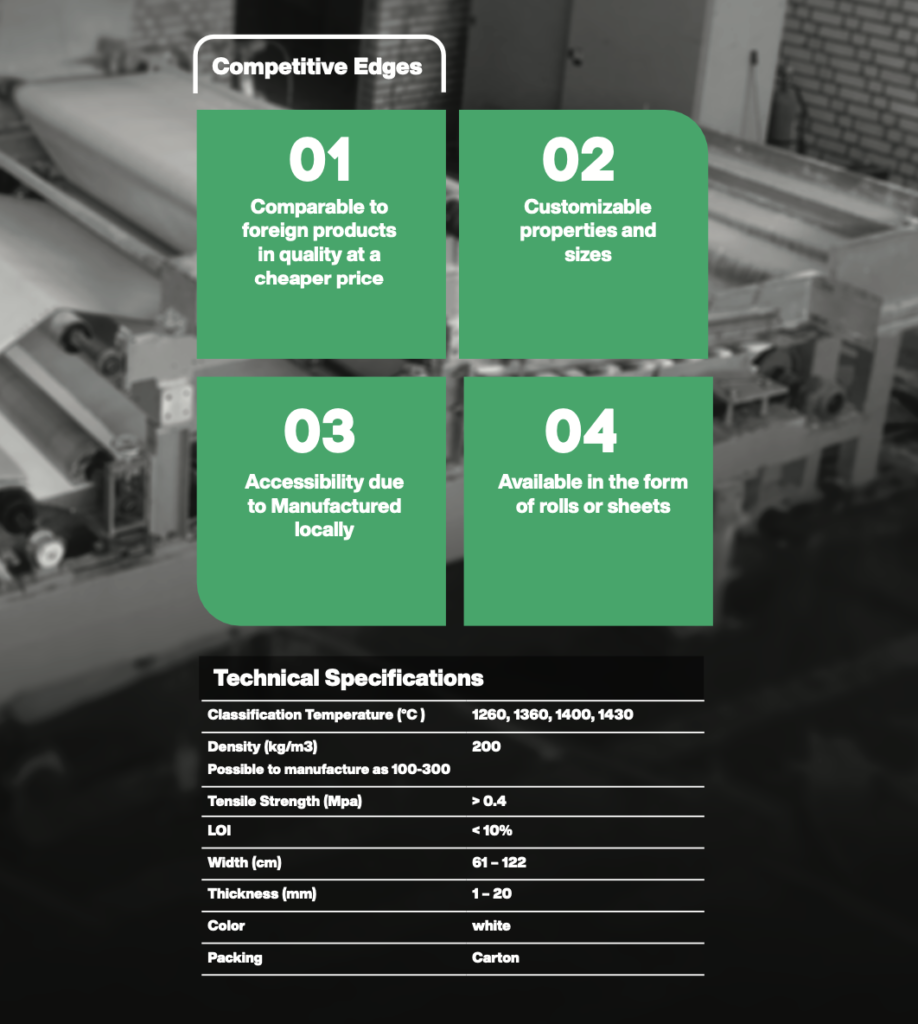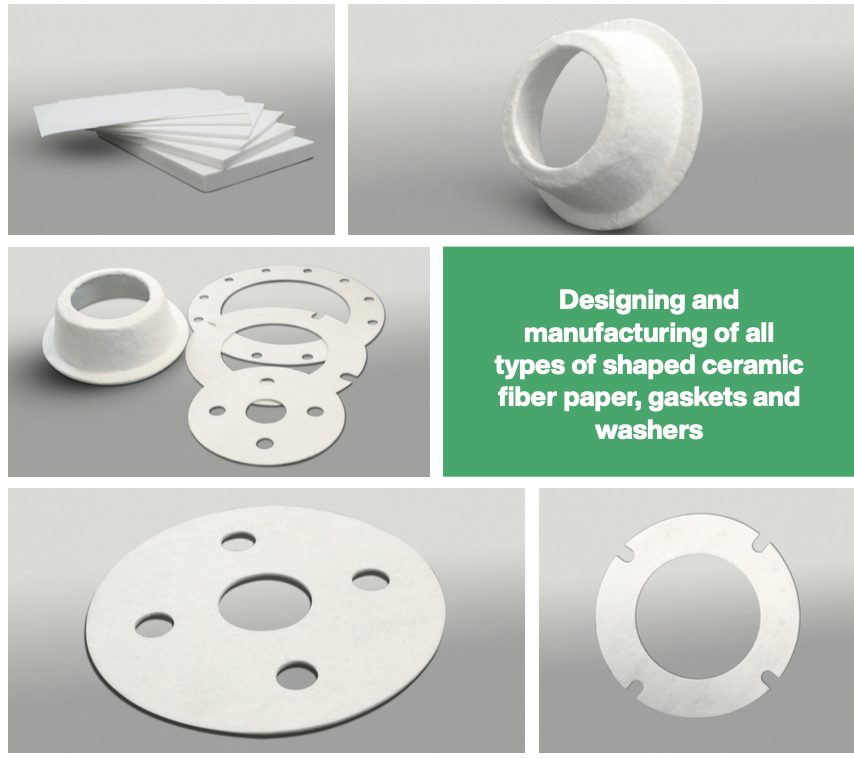Ceramic fiber paper is a type of ceramic- based insulator that can be produced from various ceramic fibers including HA and HZ, and it shows excellent resistance to high temperature and harsh mechanical and chemical environments. These have made ceramic fiber paper a suitable choice of insulation for environments where features such as resistance to high temperature, thermal shock and corrosion are required. Flexibility, consistent thickness and high tensile strength are among other unique features of this product. Compared to ceramic fiber blanket, even though paper is thinner, it has a lower heat transfer rate.
Ceramic fiber paper is a white insulator that can stand high temperatures up to 1430 C°. One of the main characteristics of ceramic fiber paper is that since it does not contain asbestos, it is not harmful to the environment or humans, making it a great substitute for asbestos-based products.
In addition to the features mentioned above, resistance to a wide range of corrosive chemicals and oxidants, ease of installation, resistance to wild temperature fluctuations and the ability to be used as a noise insulator have attracted various industries to ceramic fiber paper.

Today many industries benefit from all the advantages that ceramic fiber paper has to offer. Some of the main applications in industries are:
Sealing gasket in petrochemical industries
Heat insulation of equipment used in fuel stations and oil storage tanks
Pipe insulation in environments with high temperature or casting industries
Heat insulation of equipment in power plants
Heat insulation of catalytic converter exhausts in the automotive industry
Heat insulation of furnaces and industrial vessels
Heat insulation of ovens and boilers
Safety clothing and equipment including lining in firefighters’ uniforms and refractory bags Heat insulation to minimize heat loss in nozzles
Lining for insulation of molds
Electrical insulation in the electrical industry
A substitute for asbestos products
Sound and heat insulation in the construction industry
Ceramic Fiber Paper Features
Consistency, light weight, flexibility, white color
High thermal resistance (1260, 1360, 1400, 1430 degrees Celsius)
High durability
Formability and easy installation
Resistance to thermal shock
Proper mechanical resistance and high tensile strength
Resistance to various corrosives
Ability to be used as electrical insulator due to its proper dielectric properties Proper for sound insulation due to its sound absorption properties Environmentally friendly

